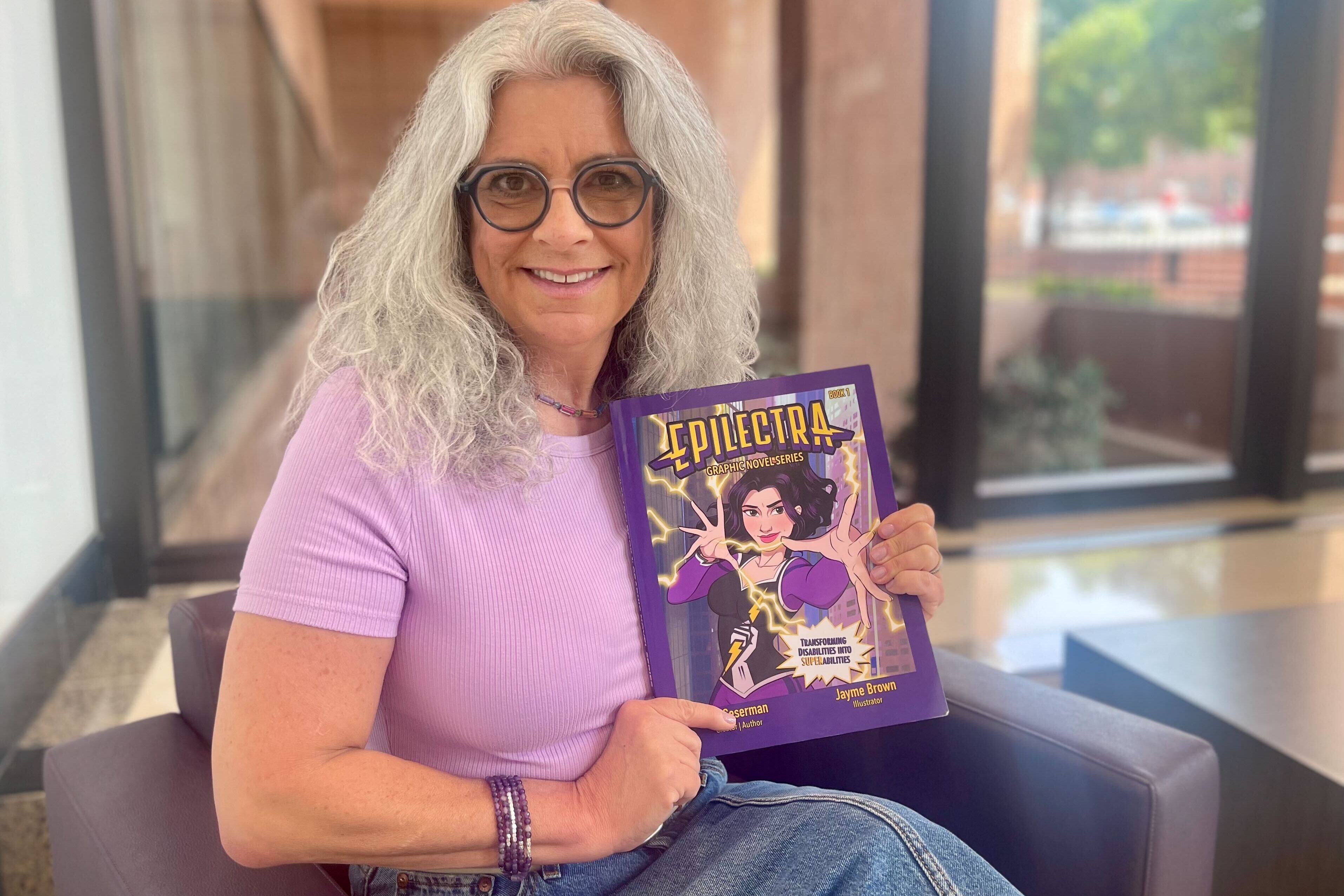
Grand Junction grandmother Della Bradley lovingly refers to her two young grandsons as “varmints,” the kind of high-energy kids who are always underfoot.
Usually the feet they’re under belong to Bradley herself. She’s been raising the boys on her own for the last two years.
Bradley’s son, the boys’ father, is in and out of jail. And Bradley says their mother is more interested in partying than parenting. Either she had to step in, she says, or the state would have and “I couldn’t see that happening.”
But it hasn’t been easy. Bradley couldn't afford daycare. So she quit her job as a bus driver and got on social services. And she has a lot of health problems, made worse by the stress of caring for the boys.
“Poor little guys,” she says, “all they think is, ‘not at the doctor's office again, grandma!’”
Someone must have noticed Bradley and the kids were struggling because last year there was a call to Mesa County child protective services. Staff there decided the situation didn't rise to the level of abuse or neglect. But they did send Bradley's information to a new voluntary child abuse prevention program.
It took a few calls for Bradley to warm up to the idea, but she eventually agreed to meet with one of its “family navigators.”
“I say, ‘I don’t have a lot of help,’” Bradley recalls. “And she says, ‘Well, we’re going to change that.’”
Bradley's navigator helped get the family into counseling and signed the boys up for summer activities so she could get a break. She also helped arrange for enough child care to allow Bradley to do the one thing she’s really wanted: go back to work.
These are the kind of miscellaneous services the Colorado Community Response Program specializes in. The state launched CCRP to try to address a known problem in the child welfare system. More than half of child abuse and neglect complaints are dismissed without an investigation. But a high percentage of the families whose first or second complaints get screened out do eventually end up with an open child welfare case.
CCRP tries to connect those families with services before things get any worse.
“The big change is it's not a black mark to have a call to child protection. It's a way to access help,” says Margery Grandbouche, head of the three-person CCRP team for Mesa and Montrose counties, which operates through the nonprofit Hilltop.
New approach, new thinking
While CCRP workers are hoping to change how families view the child welfare system, the program is also forcing the system itself to change.
CCRP workers start each new case by asking caregivers to identify what they think would improve their situation. A lot of times the answers have little to do with parenting and a lot to do with economics.
CCRP doesn’t have any income requirements, but a third of families in the program live on less than ten thousand dollars a year and more than half receive food stamps.
The link between poverty and child maltreatment is well-documented and yet little talked about. Low-income parents are five times more likely to be reported for child maltreatment than their wealthier counterparts. But the law says that just living in a poor household alone can’t be considered abuse or neglect.
So poverty has become a bit of a taboo in the social services, according Kristen Shook Slack, a professor at the University of Wisconsin's School of Social Work. Slack helped start Wisconsin’s Community Response Program, the progenitor of Colorado’s effort.
“I think we almost went overboard when… we said, ‘we don’t want to separate families for reasons of poverty alone,’” Slack says. “I sometimes wonder if we started to believe that child protective services, it’s not their job to pay attention to those economic issues.”
The result, according to people in the field, is that the field of social work field tended to downplay the stress that poverty can put on a family.
“Historically the training given to home visitors and other parent educators was dominantly focused on good parenting, positive discipline tactics. All very important,” says Mary Ann Snyder, head of Colorado's Office of Early Childhood. “But it's hard to even think about nurturing your children when you don't have a safe, stable place for your family.”
To help make sure CCRP families are stable enough to take care of their kids, the program sets aside a small amount of money -- $120,000 for all 28 counties where CCRP operates -- to help with emergency expenses, everything from rent assistance and car repairs to diapers and laundry detergent.
Unlike a lot of government money, these funds don’t come with a designated purpose and are designed to be easy for staff to access.
“It is very flexible, so that allows us to look outside the box as far as addressing challenges,” says Kathi Brown, head of Weld County's CCRP.
Brown remembers one family who ended up in her program because someone was worried the kids weren't eating well. A home visit revealed they were living in a trailer without a functional kitchen. Their parents were trying to get by with only a cooler and a hot plate.
“We worked with them: we did a budget, we did financial education sessions with them,” says Brown. “And then we helped pay for a refrigerator and a stove so they could help provide for their family.”
Evaluating the program's worth
Colorado's Community Response Program is still in the pilot stage, and researchers at Colorado State University are evaluating how it’s working. One measure of success will be if fewer CCRP families eventually end up with an open child abuse case than families that declined to join the program. That’s what’s happened in Wisconsin, where CRP started and where research shows it’s saving the state money.
“Parents that end up having an open case, there’s a high financial cost to that. Prevention services are much less expensive,” says Kendra Dunn, Child Maltreatment Prevention Director for the state, who adds the state also has the moral responsibility to try to prevent abuse.
In Mesa County, grandmother Della Bradley has reached her own conclusion. She may have been reluctant to join when the program first contacted her about help for her grandsons. But she now wishes someone had come up with this idea a lot earlier.
“Oh, it would have been a godsend for me, back in the days when [my] kids were still little, definitely,” said Bradley.
If the data shows Colorado's Community Response Program works, more struggling parents may get to experience Bradley's “godsend,” before family stress spills over into something worse.









